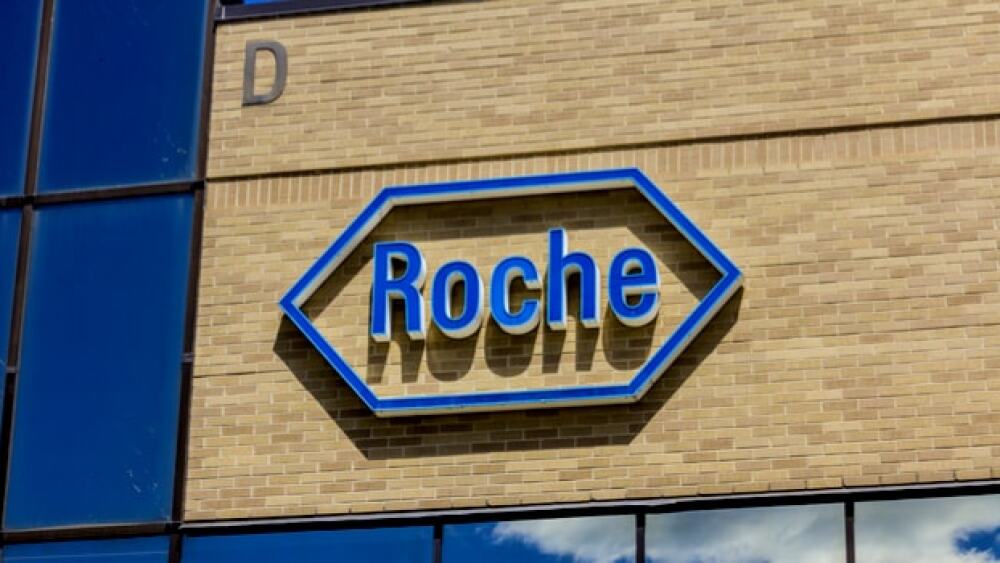Roche announced a strong second quarterly report with a 7 percent increase in group sales for the first half of the year and a 20 percent increase in its core earnings per share (EPS).
Jonathan Weiss / Shutterstock
Switzerland-based Roche announced a strong second quarterly report with a 7 percent increase in group sales for the first half of the year and a 20 percent increase in its core earnings per share (EPS).
The results were so good that it raised its 2018 outlook for the second time this year. Sales for the first half of the year rose 7 percent to 28.1 billion Swiss francs, or $28.35 billion (U.S.), which beat out a Reuters poll average forecast of 27.5 billion francs. The core operating data increased to 11.2 billion francs compared to the poll’s projection of 10.369 billion francs.
“I am very pleased about the strong set of numbers,” the company’s Chief Executive Officer Severin Schwan told CNBC, “it is entirely driven by the uptick of our new medicine.” He was referring to its drug for multiple sclerosis, Ocrevus, which he called “the best launch in the history of Roche ever. We’re only in the beginning, so I see continued growth from the new medicines, which help us offset and actually overcompensate for the entry of biosimilars, and that has been also the reason why we have raised our guidance for the full year.”
Its projections include mid-single digit sales growth, better than the previous low single-digit growth it had projected earlier. “Core earnings per share, including more robust benefits, form U.S. tax reform changes than previously expected, will grow in the mid-teen digit percentages, he said, up from the earlier prognosis of low-teen digit growth,” according to CNBC.
In addition to Ocrevus, the Pharmaceuticals Division growth was driven by cancer drugs Perjeta, Alecensa and Tecentriq. Tamiflu also had high sales during this year’s, particularly severe flu season. However, strong growth in this division was partially offset by slowing sales of MabThera/Rituxan and Tarceva.
Sales in the Pharmaceuticals Division grow 15 percent in the U.S., lead by Ocrevus, Herceptin and Perjeta. Perjeta sales rose 27 percent in the U.S., driven by its use for post-surgery treatment of patients with HER2-positive early breast cancer at high risk of recurrence.
Sales were down in Europe by 8 percent, despite strong launches of Ocrevus, Tecentriq and Alecensa.
The company’s Diagnostics Division sales grew 6 percent to 6.3 billion francs. Centralised and Point of Care Solutions rose 6 percent, driving the division, and by the growth of its immunodiagnostics business, which rose 9 percent. All business areas under Diagnostics grew. Regionally, Asia-Pacific reported 14 percent sales growth, North America reported 7 percent growth, 1 percent in EMEA and 6 percent in Latin America. In Japan, they dropped 2 percent because of decreased sales in the molecular diagnostics business.
Schwan told reporters in a conference call, “Overall, we are very well on track to rejuvenating our portfolio. I am very confident in our ability to continue our growth beyond the current year, despite the further market entry of biosimilars.”
Ian Hilliker, an analyst with Jefferies, gave Roche stock a “buy” rating, saying it was “firing on all cylinders.”





